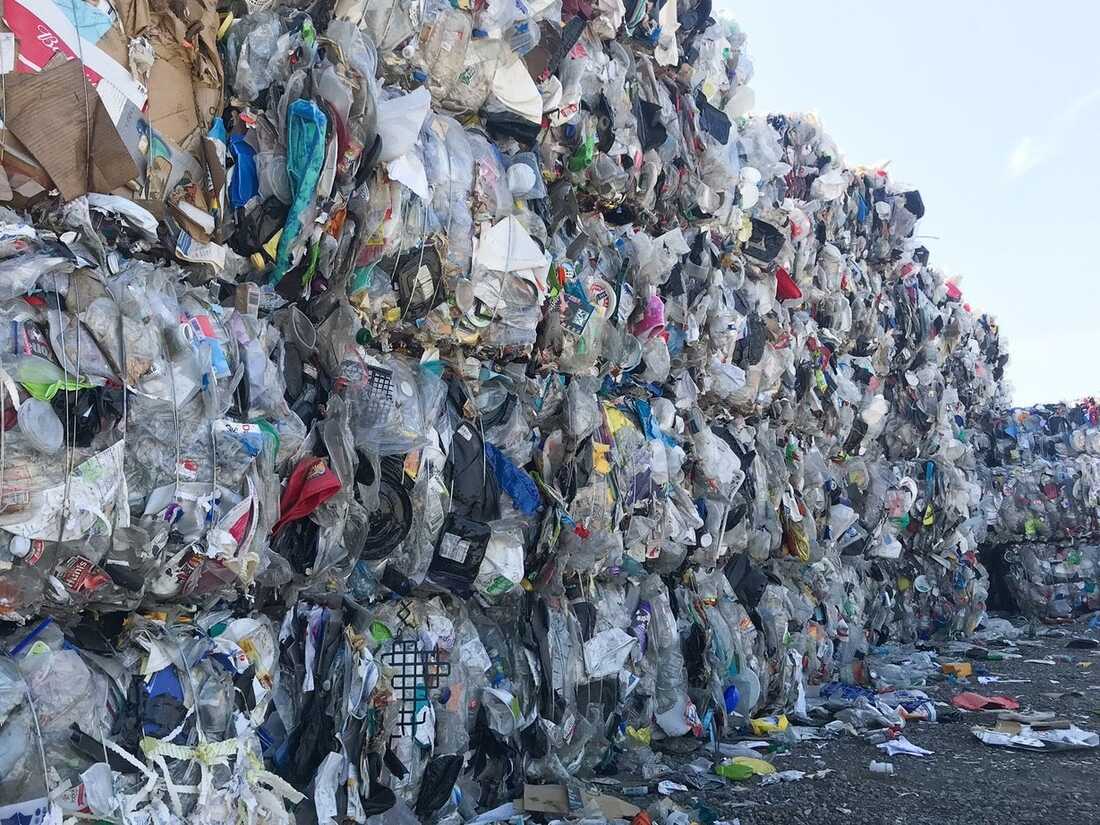Unwanted used plastic sits outside Garten Services, a recycling facility in Oregon.
Laura Sullivan/NPR
The vast majority of plastic that people use, and in many cases put into blue recycling bins, is headed to landfills, or worse, according to a report from Greenpeace on the state of plastic recycling in the U.S.
The report cites separate data published this May which revealed that the amount of plastic actually turned into new things has fallen to new lows of around 5%. That number is expected to drop further as more plastic is produced.
Greenpeace found that no plastic — not even soda bottles, one of the most prolific items thrown into recycling bins — meets the threshold to be called “recyclable” according to standards set by the Ellen MacArthur Foundation New Plastic Economy Initiative. Plastic must have a recycling rate of 30% to reach that standard; no plastic has ever been recycled and reused close to that rate.
“More plastic is being produced, and an even smaller percentage of it is being recycled,” says Lisa Ramsden, senior plastic campaigner for Greenpeace USA. “The crisis just gets worse and worse, and without drastic change will continue to worsen as the industry plans to triple plastic production by 2050.”
Waste management experts say the problem with plastic is that it is expensive to collect and sort. There are now thousands of different types of plastic, and none of them can be melted down together. Plastic also degrades after one or two uses. Greenpeace found the more plastic is reused the more toxic it becomes.
New plastic, on the other hand, is cheap and easy to produce. The result is that plastic trash has few markets — a reality the public has not wanted to hear.
Trent Carpenter, the general manager of Southern Oregon Sanitation, says when they told customers a couple years ago that they could no longer take any plastic trash other than soda bottles and jugs — like milk containers and detergent bottles — people were upset. They wanted to put their strawberry containers, bags, yogurt cups and all manner of plastic trash in their recycling bin.
“We had to re-educate individuals that a great deal of that material is ending up in a landfill,” Carpenter said. “It’s not going to a recycling facility and being recycled. It’s going to a recycling facility and being landfilled someplace else because [you] can’t do anything with that material.”
That message has been difficult for the public to absorb with so many different bins in public spaces, and their own communities telling them to put their plastic in recycling containers.
Carpenter says they wanted to be transparent with their customers and tell them the truth, unlike companies that continue to tell customers that plastic, such as bags and containers, is being turned into new things.
“Politically it’s easier to just say ‘Gosh, we’re going to take everything and we think we can get it recycled,’ and then look the other way,” Carpenter said of the other companies. “That’s greenwashing at its best.”
Continue reading…
From NPR, here.

